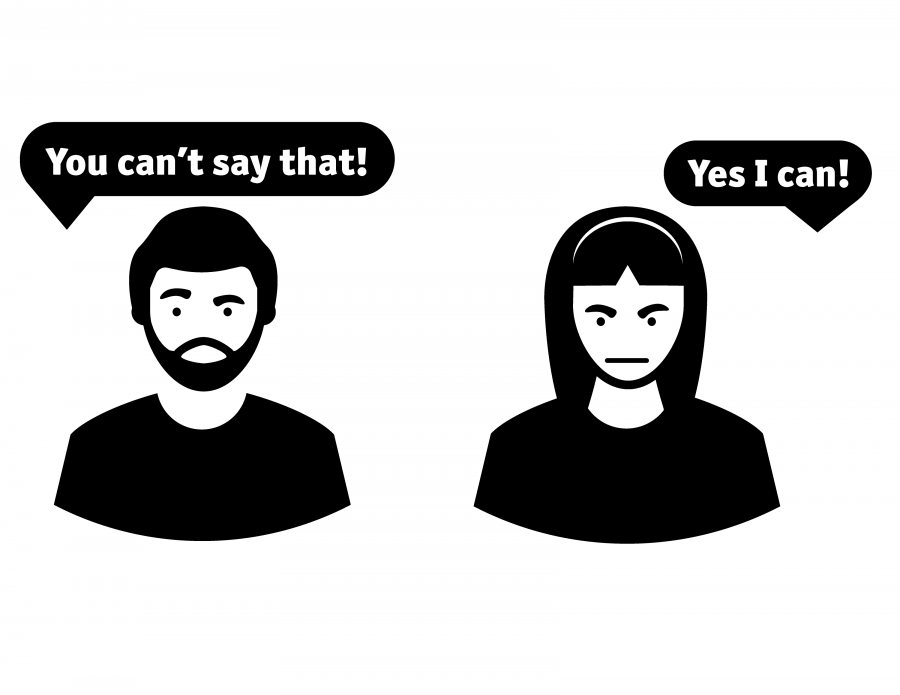Professor proposes research, changes debate surrounding political correctness
Mar 9, 2017
Political correctness has been controversial since the term gained popularity in the 1980s. The debate surrounding it has become quite convoluted, especially in the case of political correctness on college campuses.
Jack Goncalo, professor in Business, has done extensive research on the topic. Goncalo said he became interested in political correctness in 2005 after reading about it in the press.
In 2014, Goncalo co-authored a research article titled, “Creativity from Constraint? How Political Correctness Influences Creativity in Mixed-Sex Work Groups.” In his writing, Goncalo introduced the concept of political correctness to the academic world as a phenomenon that can be researched.
“It’s a spit word that people have used now for decades,” Goncalo said. “From an academic point of view, it seemed to me that people were advancing a hypothesis about the consequences of political correctness, which is that it’s inherently stifling. And so I thought, well, it’s an interesting hypothesis, but should we collect data and see if it’s actually true?”
Goncalo defined political correctness as a shared expectation that individuals replace potentially offensive words and descriptions of groups with those that are less likely to cause offense.
Get The Daily Illini in your inbox!
“The reality is the workplace is becoming more and more diverse over time,” Goncalo said. “It’s not reversing. So we’re faced with a longer list of categories of people who each have their own identities. We have to make the effort to understand how they view the world and make an effort to communicate with different people and use terms that are not offensive to them, even if it means changing the way we speak.”
Goncalo said he believes there is a serious need for new scholarship on the concept of political correctness. His solution is very simple: research. Instead of having emotional conversations in the media, Goncalo proposes that researchers collect data to understand where the political line is drawn.
“What I hope with my paper is that it just opens up that conversation in a way that’s constructive,” Goncalo said.
Joey Domanski, junior in LAS, is running for student body vice president this semester. He said he has come across many misconceptions about political correctness that he believes don’t hold true.
“Something that I’ve come across … in this past election year is that some people may think political correctness is a bad thing, or that it’s too elitist, but I think it’s just a formal way of addressing people. I think people should be talked to with respect, and if that means we have to be politically correct, I don’t see how that is a bad thing,” Domanski said.
Alex Villanueva, the current student body vice president, disagreed.
Villanueva said he believes political correctness can prevent students who have different, minority opinions from speaking their minds because of potential backlash. He also said that constantly having to watch what one says, especially if one has potentially offensive opinions about a certain topic, can stifle freedom of expression in classrooms.
However, according to Goncalo’s discoveries, this claim does not necessarily hold true.
“I think the biggest misconception we try to address in the paper is the idea that political correctness is somehow inevitably stifling. We find in fact that completely contrary to our intuition, that being politically correct under certain conditions can actually liberate people to exchange more creative ideas,” Goncalo said.
Domanski said that without political correctness, college would be a more hostile environment and people would feel uncomfortable with their identities.
“I think political correctness limiting offensive words and gestures provides a safer and more comfortable environment for everyone to live in,” Domanski said.
Villanueva said he believes political correctness has good intentions but can go too far.
“There’s a part of PC where it works, the things that are really bad that need to go away, will go away. But at the same time, it might go too far … Do we really need to change that word for political correctness reasons? Where do we cross the line? Where does something that should be okay become censored?” Villanueva said.
Spencer Haydary, senior in LAS, didn’t think political correctness could turn into censorship.
Domanski and Haydary agreed that the issue of political correctness boils down to respect and one’s moral code.
“Nobody is questioning your freedom of speech. Just be aware of what the other side is arguing, that there are better ways of getting your message across that don’t offend people. You have a right to express your opinion, but definitely understand the implications of your speech,” Haydary said.
College is viewed as a time for students to become responsible adults, ready to take on the real world. Freedom of speech is a right that every American is guaranteed, but with every right comes a responsibility.
“People say ‘but I can’t say whatever I want,’ but saying whatever you want is for babies. That’s not adults trying to have a conversation at work,” Goncalo said. “There are consequences for what we say, and that’s the piece that people opposed to PC are failing to connect.”






